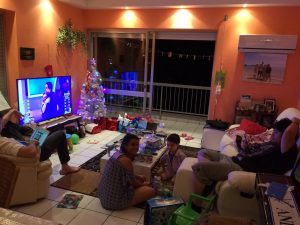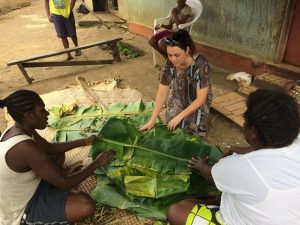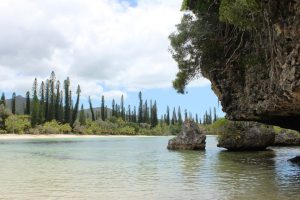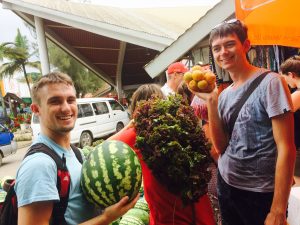Module 4
La grammaire: Pendant, pour, depuis : trois expressions temporelles françaises pour ‘for’
Pendant indicates the extension of a duration – the activity of the verb can continue for the duration announced (also indicate full duration of a completed activity).·
Past >>>>>> Past = Pendant
Examples :
– Le capitaine est resté seul pendant sa première nuit en mer [‘rester’ peut continuer pendant toute la nuit].
– Elle va étudier à Port-Vila pendant trois ans [‘étudier’ peut continuer pendant trois ans même si le futur proche semble indiquer une intention].
Pour indicates a project, an intention – the activity of the verb cannot continue for the announced duration (anticipated amount of time).·
Present >>>>>> Futur = Pour
Examples :
– Elle part à Port-Vila pour trois ans [‘partir’ ne peut pas continuer pendant trois ans].
– Des salles aménagées en appartement permettent aux prisonniers de recevoir, une fois par trimestre, pour six à quarante-huit heures, conjoints, enfants et proches [‘recevoir’ ne peut pas continuer pendant six à quarante-huit heures].
– Nous allons quitter le Caillou pour toujours [‘quitter’ ne peut pas continuer pendant toujours].
Depuis indicates the amount of time of a duration that started in the past tense and is still continuing.
Past >>>>>> Present = Depuis
Example :
– Emmanuel Macron est [has been and still is] président depuis trois ans.
Pendant, pour et depuis have other possible meanings in English but these words should not lead to too much confusion: pendant can also mean ‘during’, pour ‘in order to’ and depuis ‘since’.
À vous : Discuss which word would be most appropriate for each sentence (pendant, pour ou depuis). There might be more than one possible option depending on your interpretation of the sentence.
- Le devoir de français était un peu difficile. J’ai travaillé dessus __________ deux heures.
- Cette étudiante espère aller en Polynésie Française___________ sept mois comme assistante de langue anglaise.
- Il habite à Farino_____________ trois mois.
- Je serai chez mes parents______________ les vacances.
- Elle appréciera la communauté d’Ambrym ____________toujours.
- Elles sont venues à Malekula______________ trois ans puis elles sont reparties.
- Kevin et Oriane se connaissent ___________le collège Baudoux.
- Demain, vous partez en vacances à Ouvéa ________une semaine.
- Il faut que tu réserves un hôtel sur Tanna _________deux nuits si tu veux voir Yasur.
- J’étudie le bichelamar ________six mois.
See if you can spot more examples in authentic texts. Visit the websites of Nouvelles-Calédoniennes and La Dépêche de Tahiti and look for examples in the news articles of the use of for, during and since.
Activité de Recherche
Choisissez trois mots/termes soulignés ci-dessus en vert puis rédigez un résumé en français ou en anglais pour les expliquer. Vous pouvez également par la suite partager vos découvertes à voix haute avec le reste de votre classe.
Activité d’écoute: La Jeunesse sur Wallis et Futuna
Activité de construction de phrases: Les Jeunes
Améliorez vos compétences en écriture en construisant et en développant les phrases ci-dessous:
- La rentrée à Nouméa commence …
- Les jeunes aiment…
- Les études sont…
- Souvent, les étudiants…
- La classe de ….
- Ce sont les devoirs…
Find the Words
Analyse et discussion: Analysez les images et décrivez-les en français.





360 Pacific French Adventure: En Ville
Voices of the Pacific French: Chanteuses du Pacifique Francophone
Watch this video clip and discuss with a partner what you understand and see:
Although French is spoken in New Caledonia, there are also many other languages spoken in this island country. For example, there are about 28 Kanak languages. To learn more about Kanak languages, please visit L’Académie des Langues Kanak.
Indigenous languages are fascinating. If you would like to learn a Kanak language, why not try Nengone.

